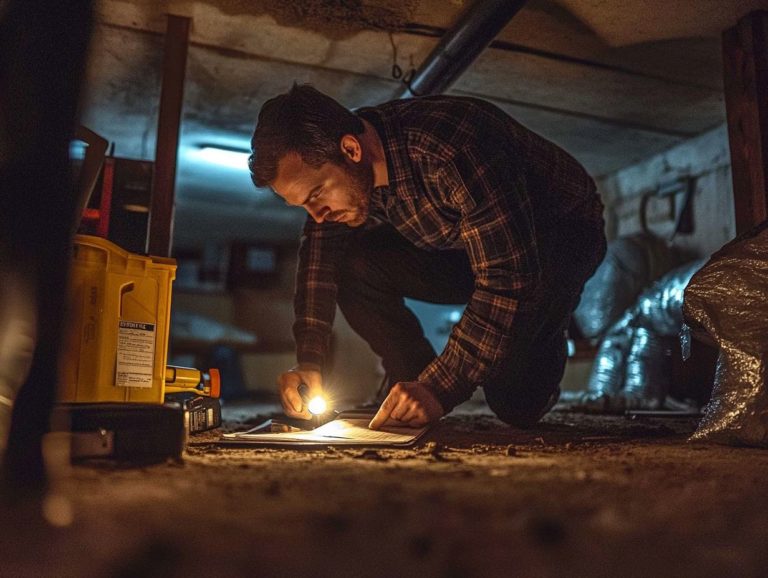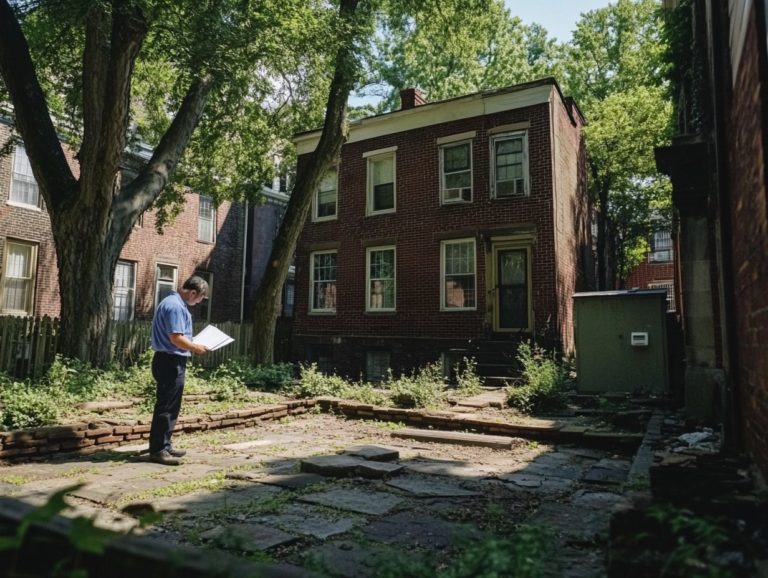How to Deal with Home Inspection Contingencies
Navigating the home buying process can feel daunting, especially when you encounter home inspection contingencies. These essential clauses protect your investment by ensuring the property meets your quality standards.
This article delves into the essence of home inspection contingencies and their significance. You ll also discover effective strategies for negotiating repairs and preparing for a seamless inspection process. Keep reading to take charge of your home-buying journey!
Contents
- Key Takeaways:
- Understanding Home Inspection Contingencies
- The Importance of Home Inspections
- Common Contingencies in Home Inspections
- How to Address Contingencies
- Preparing for a Successful Home Inspection
- What to Do if a Contingency Cannot be Met
- Frequently Asked Questions
- What are home inspection contingencies?
- Should I include a home inspection contingency in my contract?
- What should I do if the home inspection reveals major issues?
- Can I waive the home inspection contingency?
- What are some common issues found during a home inspection?
- Can I still negotiate after the home inspection contingency period has passed?
Key Takeaways:
- Know about home inspection contingencies: Understand their importance in buying a home.
- Prepare for a successful inspection: Follow tips to ensure all inspections are thorough.
- Negotiate repairs: If there are issues, communicate with the seller for a resolution.
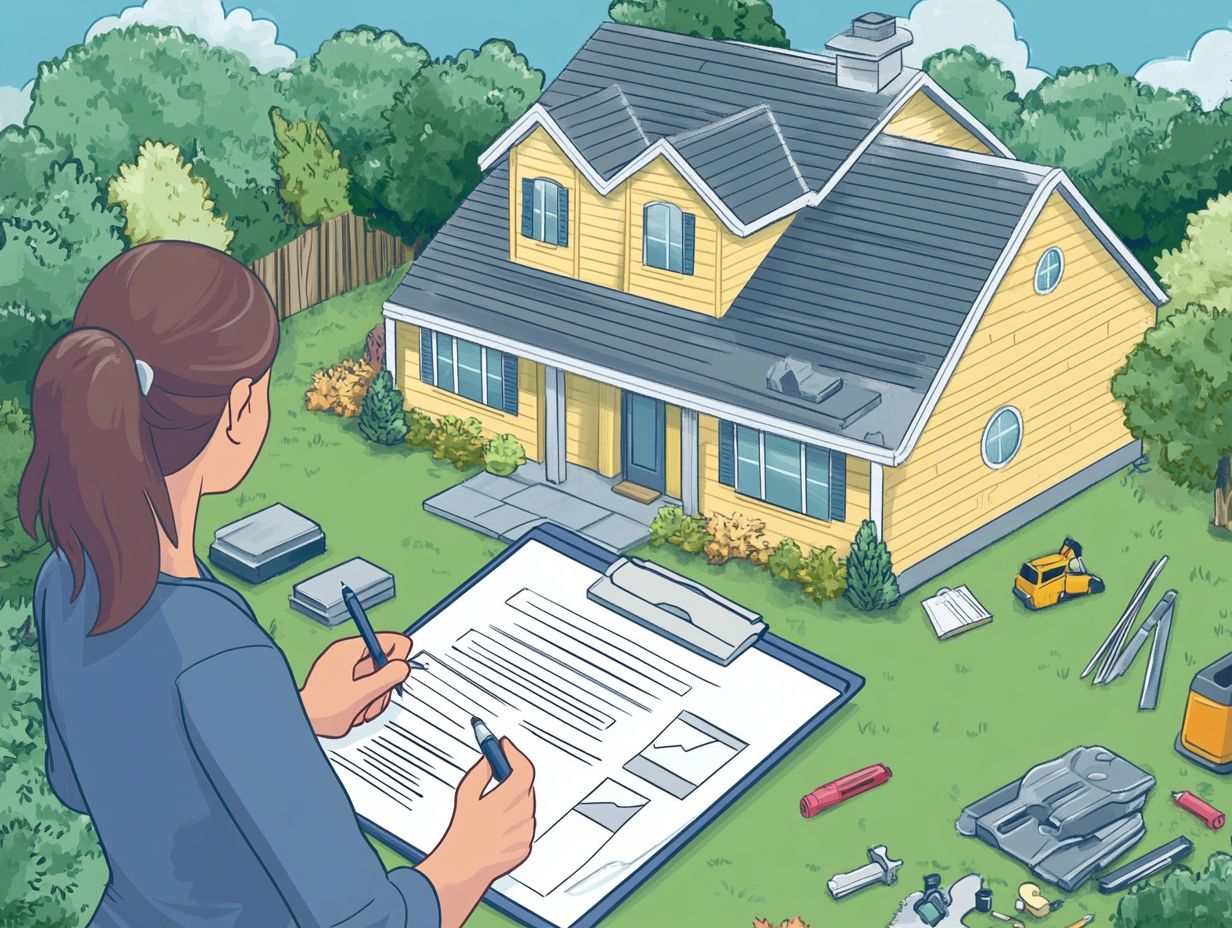
Understanding Home Inspection Contingencies
Understanding home inspection contingencies is crucial for home buyers navigating the real estate market, particularly in competitive locales like California and Minnesota. These contingencies provide protection, allowing you to withdraw from a purchase agreement if the inspection uncovers significant issues affecting the property’s value or safety. Knowing what to do after a home inspection can further guide you in making informed decisions.
What are Home Inspection Contingencies?
Home inspection contingencies are crucial clauses in a purchase agreement. They allow you to request a professional evaluation of a property before finalizing your home purchase, including understanding how to handle post-inspection repairs.
These contingencies act as a safety net, enabling you to assess the home’s condition and uncover hidden issues like structural problems or outdated electrical systems that may not be immediately visible. By including this clause, you gain leverage to negotiate repairs or reconsider your offer if significant defects arise.
For example, if a home inspector finds mold in the attic, you can ask the seller to remediate the problem or potentially walk away from the deal without financial repercussions. This framework safeguards your investment and defines the seller’s responsibilities, compelling them to disclose known defects and address any issues that arise during the inspection process.
The Importance of Home Inspections
Home inspections are essential in your home buying journey, providing invaluable insights into the property’s condition and ensuring your safety as a buyer. They pinpoint potential issues that could arise after the sale.
A comprehensive inspection report can reveal concerns with major systems like HVAC (heating, ventilation, and air conditioning), plumbing, and foundation critical factors for any discerning home buyer. In a competitive real estate landscape, a meticulous home inspection is paramount, equipping you with the knowledge needed to make well-informed decisions.
Why Home Inspections are Necessary
Home inspections are vital, providing a thorough assessment of a property’s current condition, which is critical for making informed financial choices. These inspections protect you from potential hidden issues that could lead to unexpected repair costs later on.
By identifying problems early, you can avoid unpleasant surprises and financial burdens that might not have been obvious at first. The findings from an inspection often become powerful negotiation tools, allowing you to request repairs or price reductions before sealing the deal. This process reinforces your rights as a buyer, enabling you to enter into an agreement with enhanced confidence and clarity.
Ultimately, embracing this step fosters transparency and champions financial responsibility throughout your entire home buying journey.
Common Contingencies in Home Inspections
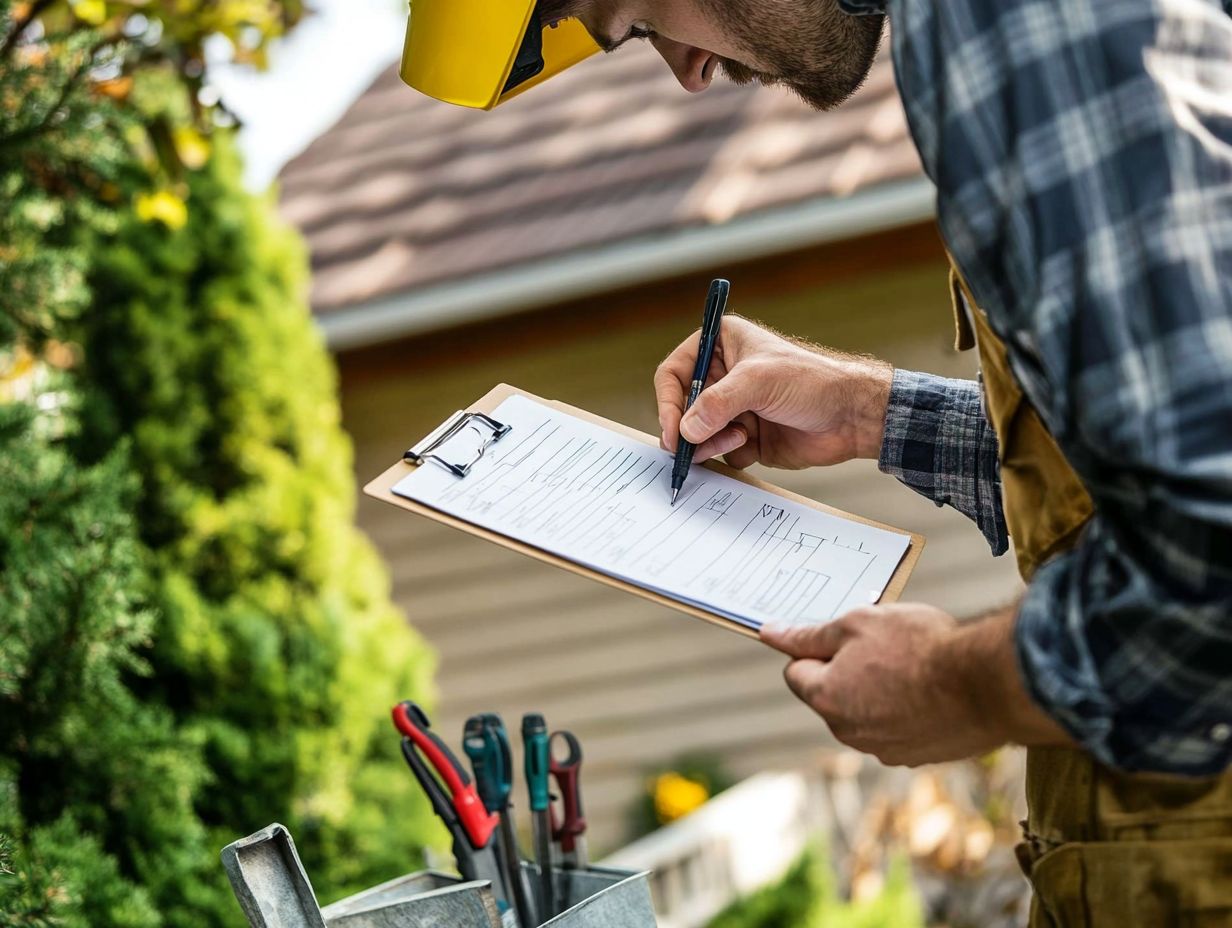
Common contingencies in home inspections can profoundly impact the outcome of a real estate transaction. As a buyer, you may encounter inspection findings concerning critical elements of a property, and knowing how to handle home inspection repairs can be crucial.
For example, you might find it necessary to request further inspections for radon levels, water issues, or foundation concerns uncovered during the initial assessment.
Understanding each contingency helps you negotiate better and ensures you’re protected by home warranties.
Types of Contingencies and What They Mean
Several types of contingencies can emerge during the home inspection process. Each carries unique implications for you as either a buyer or a seller. To learn more about these situations, including how to handle a contingent offer, it’s important to understand that these contingencies primarily act as protective measures, allowing you to reassess your offer or negotiate terms based on the inspection findings.
Common examples include:
- An agreement that the property s value must meet or exceed the purchase price.
- A provision that allows you to ask for repairs or credits if serious issues are found during the inspection.
It’s crucial for you to carefully consider how these contingencies might influence your negotiating power and the timeline for the sale. As a seller, you might need to address unexpected repairs that could reshape your obligations and the dynamics of the transaction. By understanding these elements, you can pave the way for a smoother process for everyone involved.
How to Address Contingencies
Tackling contingencies head-on can make all the difference in your home-buying adventure! Effectively addressing them is essential for successful home inspections. This approach empowers you to negotiate repairs or credits based on the inspection findings, and you can learn more about how to handle post-inspection negotiations while cultivating positive agreements with sellers.
Negotiating Repairs and Credits
Negotiating repairs and credits after a home inspection demands your careful attention to the inspection findings and a clear understanding of financial responsibilities.
To navigate this process effectively, it s essential for you to thoroughly review the inspection report and pinpoint critical issues that could affect the home s overall value and livability.
Creating a detailed checklist of repairs, prioritizing the must-haves over mere cosmetic fixes, will serve you well.
When it’s time to negotiate, presenting your findings in a clear and factual manner can pave the way for a productive conversation.
Proposing a fair credit or repair allowance not only showcases your flexibility but also helps foster goodwill between both parties.
As you manage closing costs, strategically incorporating these negotiation outcomes will ensure that all financial aspects are documented and agreed upon before you seal the deal.
Preparing for a Successful Home Inspection
Preparing for a successful home inspection requires a comprehensive understanding of the inspection process.
You’ll want to create a detailed home inspection checklist and be well-informed about your rights as a buyer during this crucial stage of the real estate transaction.
Tips for a Smooth Inspection Process

To ensure a seamless inspection process, actively engage with your home inspection checklist. Voice any concerns about potential issues or safety hazards to the inspector. By being proactive, you not only tackle immediate concerns but also take charge of your home-buying journey.
You re encouraged to familiarize yourself with the various aspects of the property that will be examined, including:
- Electrical systems
- Plumbing
- Roof condition
By sharing specific areas of concern, you can significantly enhance the inspector’s evaluation process. Effective communication not only helps clarify your uncertainties but also fosters a collaborative relationship with the inspector. This partnership can lead to the discovery of issues that might otherwise slip through the cracks.
What to Do if a Contingency Cannot be Met
If a contingency cannot be met, it s essential for you to understand your rights and consider alternatives to safeguard yourself throughout the closing process.
Alternatives and Next Steps
When you encounter unresolved issues, it’s essential to explore various alternatives and outline clear next steps based on the inspection findings.
This is your chance to negotiate new agreements with the seller. You may achieve compromises on repairs or price adjustments that ultimately protect your interests.
Understanding the inspection results is crucial for your discussions. If significant issues arise that were undisclosed or inadequately addressed, it might lead you to reconsider your purchase decision, weighing the pros and cons of proceeding.
By developing a strategic approach, you empower yourself and prepare for potential negotiations with the seller, ensuring a more informed and confident buying experience.
Frequently Asked Questions
What are home inspection contingencies?
A contingency is a condition that must be met for the sale to proceed. Home inspection contingencies are clauses in a real estate contract that allow the buyer to back out of the purchase if the home inspection reveals significant issues with the property, and understanding negotiating repairs after home inspection can be crucial in these situations.
Should I include a home inspection contingency in my contract?
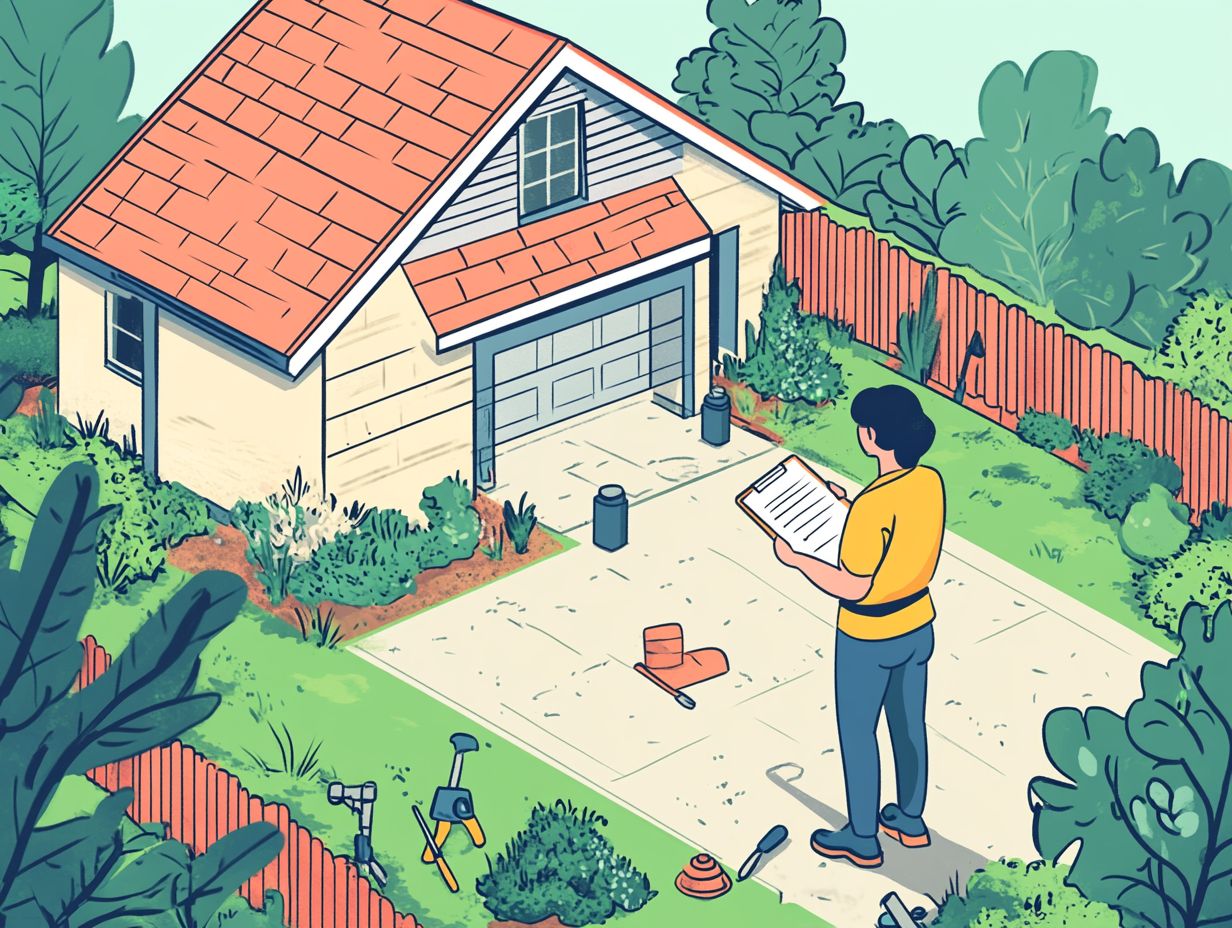
Yes! Including this contingency protects you from major issues found during inspection.
What should I do if the home inspection reveals major issues?
If the home inspection reveals major issues, you have several options. You can negotiate with the seller to have them make repairs, ask for a credit to cover the cost of repairs, or back out of the contract altogether.
Can I waive the home inspection contingency?
Yes, you can waive the home inspection contingency, but it is not recommended. By waiving this contingency, you agree to purchase the property as-is, without the option to back out if any major issues are found.
What are some common issues found during a home inspection?
Some common issues found during a home inspection include structural problems, plumbing and electrical issues, roof damage, mold or water damage, and pest infestations.
Can I still negotiate after the home inspection contingency period has passed?
It is possible to negotiate after the home inspection contingency period has passed, but it may be more difficult. To effectively address concerns, consider learning how to make the most of your home inspection during this period, as the seller may be less willing to make changes once the contingency period has ended.
Don’t skip your home inspection! It’s a vital step for a successful purchase.


